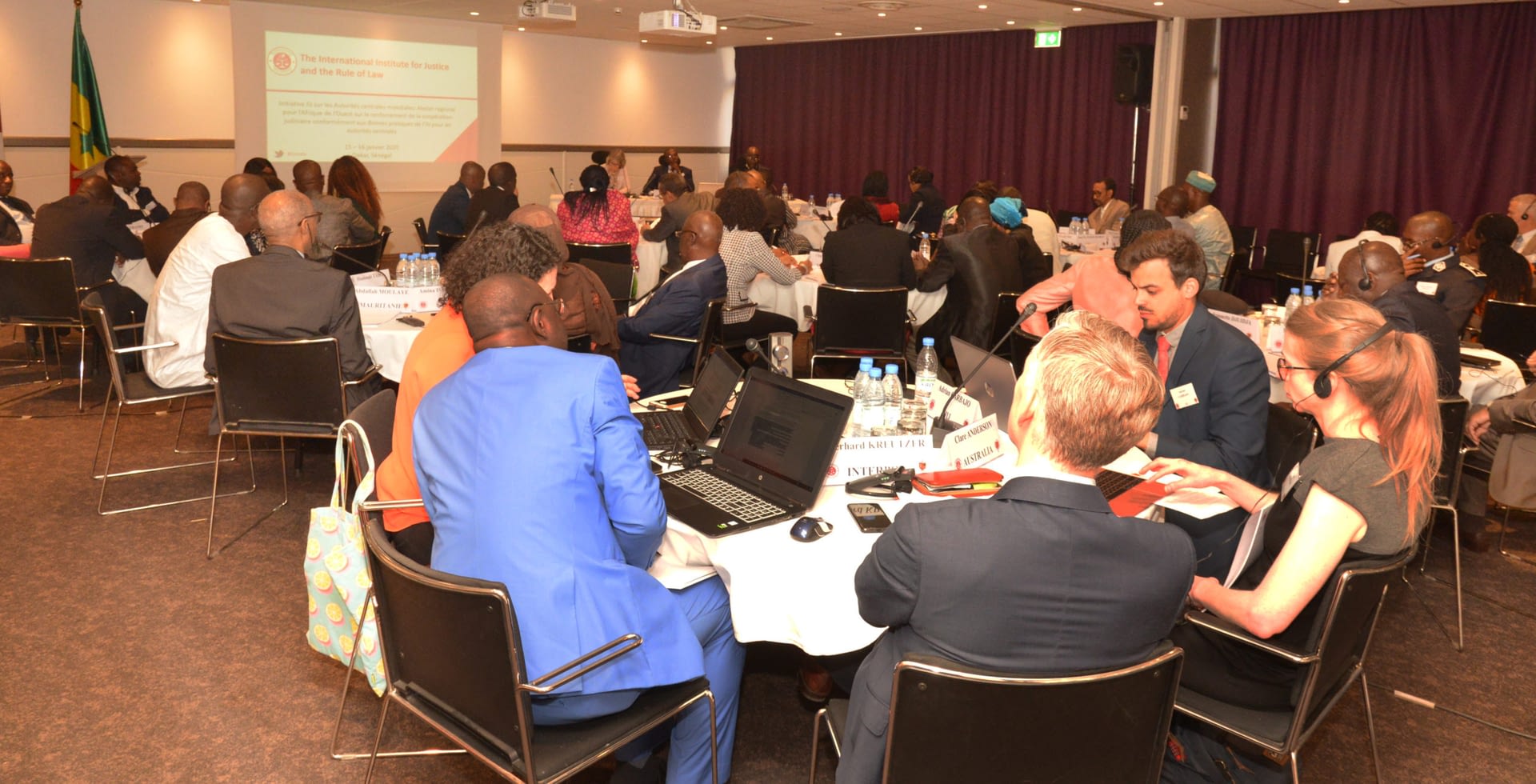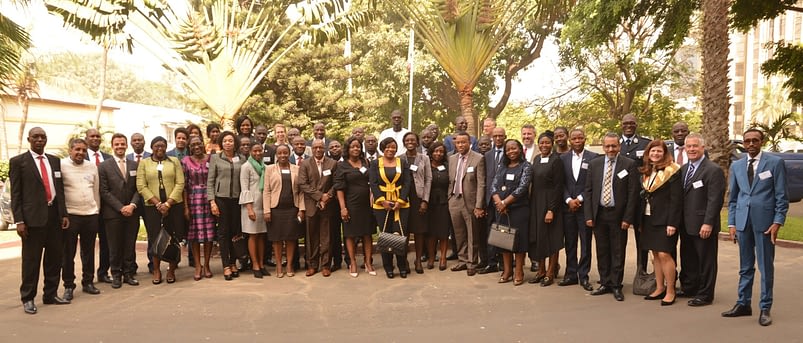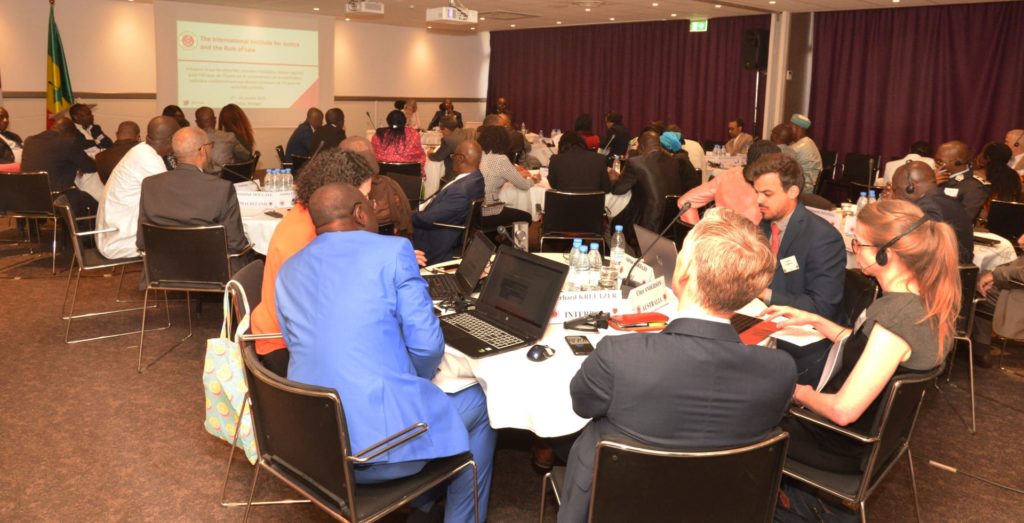
In January 2020, the IIJ convened a capacity-building workshop on Enhancing Regional and International Cooperation Between Criminal Justice Sector Stakeholders in Terrorism Cases, which focused on the specific needs and experiences of practitioners in the West Africa region.
The workshop is the third in a series of regional capacity building workshops for criminal justice sector practitioners under the IIJ Global Central Authorities Initiative, one of the eight IIJ Core Initiatives. The GCAI receives generous funding from the U.S. Department of State’s Counterterrorism Bureau and invaluable substantive input from the U.S. Department of Justice’s Office of International Affairs.
The West Africa Regional Workshop, held in Dakar, brought together 39 judges, prosecutors and investigators responsible for handling terrorism investigations and prosecutions from eleven countries across the West Africa region – Benin, Burkina Faso, Cameroon, Chad, Côte d’Ivoire, Ghana, Mali, Mauritania, Niger, Nigeria and Senegal. They were joined by practitioner colleagues from Australia, Tanzania, Uganda, and the United States, and representatives of INTERPOL and the United Nations Office on Drugs and Crime (UNODC).
The workshop provided an important opportunity for capacity building and practical skills development and application based on the IIJ Good Practices for Central Authorities (hereafter IIJ Good Practices). Published in September 2018, the IIJ Good Practices (available in Arabic, English and French) serve as a guide for Central Authorities – the national entities responsible for mutual legal assistance (MLA) and extradition – and provide a framework of institutional, legal and practical considerations for establishing and supporting the work of these important institutions. The IIJ Good Practices elucidate Good Practice Nine of the GCTF's Rabat Memorandum of Good Practices for Effective Counterterrorism Practice in the Criminal Justice Sector, which calls for practices and procedures to encourage international counter-terrorism cooperation.
During the two-day workshop, practitioners from Senegal and Nigeria presented lessons learned from investigating and prosecuting high-profile terrorism cases in their jurisdictions that required intense regional and international cooperation, putting into practical context the IIJ Good Practices. They were joined by Central Authority practitioners from Australia, Tanzania, Uganda and the United States who shared their shared real-world experiences in issuing, receiving and affording MLA and extradition requests.
Participants worked through practical exercises, applying the good practices, and discussing challenges and obstacles they face in their work, including overwhelming workloads with insufficient resources (staff and funds). They emphasised the critical importance of having the support of policy-makers and political actors to address these challenges. The workshop concluded with a session on practical recommendations for improving regional judicial co-operation in West Africa, such as ensuring secure communications and transfer of evidence across borders, and homogenising the working methods and configurations of their Central Authorities.
For more information on this workshop or the IIJ Global Central Authorities Initiative, please contact Programme Manager Adrián Carbajo.



